Iran says ready for constructive talks to restore Tehran-Beirut flights
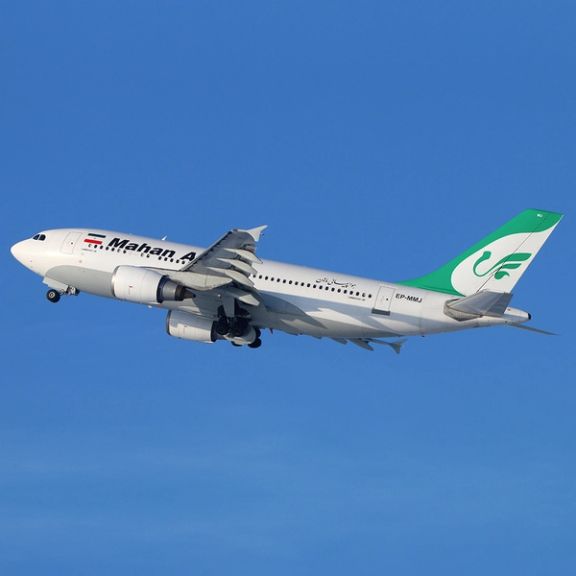
Iran's foreign minister said Saturday the country was prepared for constructive talks with Lebanon on restoring Tehran-Beirut flights.

Iran's foreign minister said Saturday the country was prepared for constructive talks with Lebanon on restoring Tehran-Beirut flights.
In a phone call on Saturday, the two countries’ foreign ministers discussed “how to resolve the problem of civil flights” and “confirmed their readiness to hold constructive talks in good faith”, after a decision to bar two flights from landing triggered violent protests in Beirut.
Iran reciprocated by barring two Middle East Airlines flights from landing in Tehran to evacuate Lebanese citizens, Lebanon's An-Nahar reported.
Iran's ambassador to Beirut Mojtaba Amani told state media that the Islamic Republic will allow Lebanese flights to land in Tehran only if Iranian flights are permitted to land in Beirut.
Tensions between the two countries started when Lebanon halted flights by Iranian carriers, including Mahan Air and Iran Air.
Saeed Chalondari, CEO of Imam Khomeini Airport City, said Lebanon had announced a suspension of Iranian flights until February 18, directing passengers to use Lebanese carriers instead.
The dispute follows accusations from Israel that Iran’s IRGC Quds Force has been using civilian flights to smuggle funds to Hezbollah via Beirut International Airport. Israeli military spokesperson Avichay Adraee said on X that Iran and Hezbollah were exploiting commercial flights to transfer money for attacks on Israel.
The flight ban has sparked tensions in Lebanon. Images circulating on social media showed Hezbollah supporters blocking roads to Beirut Airport in protest against the refusal to allow Mahan Air to land.
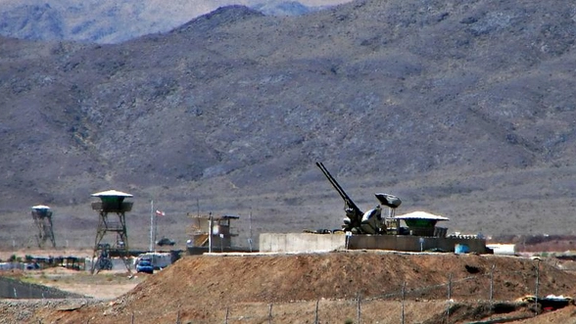
If Tehran fails to reach an agreement with the Trump administration before October, Israel will launch a military attack on Iran, Al-Hadath reported citing a senior European diplomat.
"The Trump administration is trying to reach an agreement with Iran before October. However, if this agreement is not achieved, the region will face a serious crisis," the diplomat said.
The senior diplomat cited by Al-Hadath said the United States is seeking direct and confidential negotiations with Iran.
On February 4, Trump signed a directive reviving his so-called maximum pressure policy on Iran from his first term aimed at driving the Islamic Republic's oil exports to zero. After signing the memorandum, he said he would prefer a deal with Tehran to an Israeli attack on their nuclear sites.
"I would love to make a deal with them without bombing them," he said on Fox News.
The European diplomat cited by Al-Hadath said the Islamic Republic is weaker than ever and is desperate to negotiate.
"Iran will accept any agreement that includes the lifting of sanctions," the diplomat said, adding that Tehran is waiting for the Trump administration to appoint a negotiator.
In his Fox News interview, Trump said that Iran is terrified after losing almost all its air defenses and now would love to make a deal with the United States.
"Iran is very concerned. Iran is very frightened, to be honest with you, because their defense is pretty much gone," Trump said.
He was apparently referring to Israel's October attacks on Iran which, according to US officials, knocked out the country's last three Russian-provided S-300 air defense missile systems.
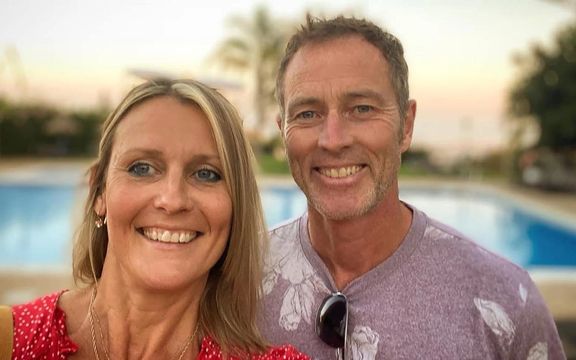
The family of two British nationals detained in Iran has expressed their concern and confirmed they are working with relevant authorities to ensure the safe return of their loved ones who were on a round-the-world motorbike trip.
Iranian authorities detained two British nationals in the southern city of Kerman on unspecified security charges, Iran’s official news agency IRNA reported Wednesday.
The family of the two, in a Saturday statement released by the British Foreign Office, named them as Craig and Lindsay Foreman.
The couple, in their early 50s, had been on a motorbike trip across the world and had only planned on being in Iran for five days.
British media reports indicate that the couple were heading for Australia, having crossed into Iran from Armenia on December 30, according to social media posts.
Lindsay Foreman was carrying out a research project as part of the journey, asking people what constitutes a good life.
The Foreman family acknowledged their detentions and emphasized the distress caused by the incident.
"This unexpected turn of events has caused significant concern for our entire family, and we are deeply focused on ensuring their safety and well-being during this trying time," the family said.
They also highlighted their active engagement with the British government and other relevant authorities, saying they are "united in our determination to secure their safe return."
British Ambassador Hugo Shorter met with the two detainees at the local prosecutor’s office in Kerman, IRNA reported Wednesday.
The timeline of the detentions remains unclear.
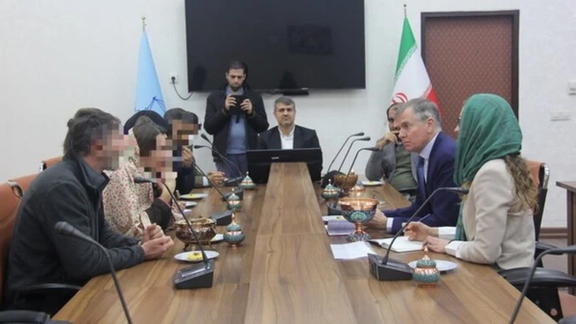
The incident occurs amidst a broader context where Iran's elite Revolutionary Guards have arrested dozens of foreigners and dual nationals in recent years, predominantly on espionage and security-related charges.
Human rights groups and several Western nations have accused Iran of using such arrests to extract concessions from other countries, though Tehran has consistently denied that these detentions are politically motivated.
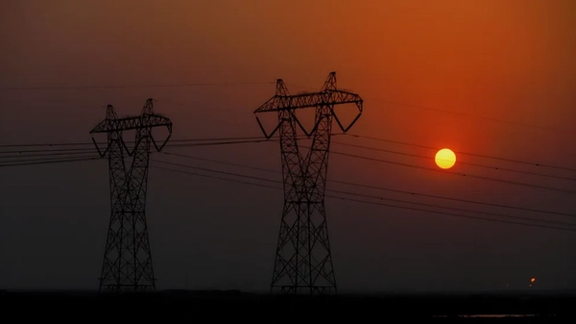
Veteran politician and former Vice President Es’haq Jahangiri has called for the dismissal of officials responsible for Iran’s energy crisis, arguing that widespread power outages could have been prevented even without the country’s oil and gas resources.
“Even if we had no oil and gas, we should not have reached this situation this winter,” Jahangiri said at the Energy Imbalance and Solutions Congress, criticizing officials for failing to secure adequate fuel supplies for power plants.
He criticized the lack of emergency measures, asking, “Could we not have imported two shiploads of diesel to keep power plants running and avoid becoming a laughingstock?”
The former official warned that continued mismanagement could lead to even more severe disruptions in the future.
Power shortages in the cold season have led to public anger and sporadic protests as overall economic crisis deepened and prices soared.
Days of protests in the small town of Dehdasht and at the University of Tehran have underscored growing public anger toward the government. Despite a heavy security presence, residents have also voiced their frustration over power outages and rising living costs by shouting anti-government slogans from their apartment windows each night.
Sporadic demonstrations also occurred in other cities earlier this week, including Shiraz, Yazd, Tehran, Parand, Shazand, Bukan, Hashtgerd, and Kamyaran.
Protesters have directed much of their ire at Supreme Leader Ali Khamenei, chanting slogans calling for his removal and condemning the government’s failure to manage the ongoing crisis.
Widespread blackouts have forced school and government office closures across multiple provinces on some days, with authorities blaming the outages on high gas consumption and limited supplies. Iran has the world's second largest natural gas reserves but production is declining due to lack of technology and investment.
The Iranian rial recently hit an all-time low, with the US dollar briefly reaching 940,000 rials before experiencing a slight recovery. Essential goods such as rice, dairy, and cooking oil have seen price hikes up to 110% over the past year, deepening financial hardships for Iranian households.
Despite mounting crises, top officials, including President Masoud Pezeshkian and Parliament Speaker Mohammad Bagher Ghalibaf, have continued to praise Supreme Leader Khamenei’s rejection of negotiations with the United States. Meanwhile, calls are growing from those who see diplomacy as a possible way to ease the economic strain caused by sanctions.
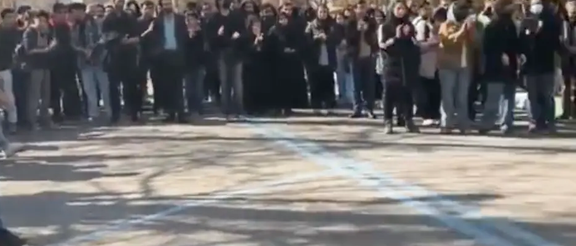
Protests over the death of a 19-year-old University of Tehran student continue to intensify, as others gathered in front of the university's central library on Saturday amid reports of a heavy security presence on the main campus.
Amir Mohammad Khaleghi, an undergraduate in business management, was fatally attacked by robbers with a cold weapon near the university dormitory on February 13. The victim died from his wounds in hospital. The incident has sparked widespread anger among students, who accuse university officials of failing to ensure their safety.
The unrest began Friday, when students organized a sit-in at the courtyard of Tehran University’s dormitory complex. Security forces and plainclothes agents surrounded the campus, arresting four students.
Although the detained students were later released under pressure from their peers, reports of excessive force, including one protester sustaining a broken nose, have added to the outrage.
The National Student Guild Council released a statement holding university officials responsible for years of neglect that led to unsafe dormitory conditions.
“The loss of a 19-year-old student is the tragic result of years of inaction and misplaced priorities,” the statement said, citing repeated violence and theft at the dormitory's back entrance.
Students have expressed their anger through chants like "IRGC, you are our murderer" and "The blood spilled cannot be erased." Some shouted "Death to the Islamic Republic" and "Death to Khamenei" from dormitory windows.
Nationwide solidarity is growing, with students from universities such as Amir Kabir, Sharif, and Tabriz condemning the suppression of protesters and expressing sympathy with University of Tehran students.
Exiled Prince Reza Pahlavi called on students, university professors, and various segments of the Iranian people on Friday to support the protesting students of the University of Tehran and to ensure that the killing of Khaleghi and the suppression of students do not come without a cost for the authorities.
"The killing of Amir Mohammad Khaleghi and the violence against protesting students at Tehran University's dormitory once again demonstrated how incapable the Islamic Republic is in ensuring the security of the nation. Instead of protecting the lives and rights of its citizens, it becomes the primary source of insecurity through suppression, arrests, and killings. Ignoring human tragedies is merely a part of the entirely destructive record of this anti-Iranian regime," he wrote on X.
Nobel Peace Prize laureate Narges Mohammadi also voiced support, urging Iranians to stand with the protesters: "Let’s not leave the young protesters alone."
In response, the Minister of Science Hossein Simayee Sarraf, announced plans to install surveillance cameras and security kiosks in vulnerable campus areas. He also confirmed the resignation of the dormitory manager.
The Tehran Prosecutor’s Office said it has assigned a special judicial investigator to the case and suspects arrested in connection with the murder.
Vice President Mohammad Reza Aref has also called for an immediate investigation.
The overall political and social situation in Iran is tense due to the worsening of economic crisis, rising inflation accompanied by rising poverty.
As the protests persist, the government’s response thus far suggests an attempt to avoid the heavy-handed crackdowns seen during previous rounds of university unrest. Efforts to engage in dialogue and implement security measures appear aimed at calming tensions without further escalation. However, given the Islamic Republic’s history of suppressing dissent, the possibility of a harsher response cannot be ruled out.
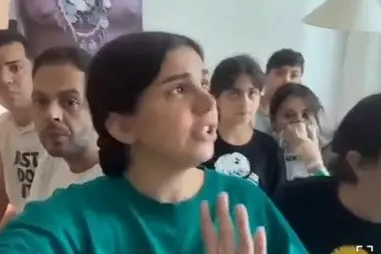
Iran’s government on Saturday condemned the treatment of Iranian nationals deported from the United States to Panama, calling it harsh and inhumane.
This marks the latest in a series of deportations under policies implemented during Donald Trump’s presidency, which have sent undocumented migrants to countries including Colombia, Venezuela, Brazil, Guatemala, Panama and the Guantanamo Bay military base in Cuba.
Iran’s Foreign Ministry spokesperson Esmail Baghaei urged the US to uphold international norms in its treatment of immigrants. He said that Iran “will spare no effort in protecting its citizens abroad,” adding that the Iranian Interests Protection Office in Washington and diplomatic missions in South America have been instructed to assist deported Iranians.
“Iran is the homeland of all Iranians, and our compatriots can freely return to their homeland and travel,” Baghaei said.
This follows the deportation of at least 12 Iranian migrants who had illegally entered the US via Mexico. The migrants were detained and flown to Panama on a US military plane, a move that has drawn significant scrutiny.
The deportees say they were shackled and handcuffed during the transfer and are now confined to a Panamanian hotel under US government oversight. According to the deportees, the US appears intent on erasing any evidence that they had ever entered the country.
It is not clear how many applied for political asylum in the US, but some report being stranded without money, internet access, or legal counsel, and they fear being sent back to Iran.
Among them is Artemis Ghasemzadeh, who told Iran International TV that she and others were initially told they were being moved to a camp in Texas.
“The security personnel didn’t tell us where we were going, and when we landed, we saw Panama’s flag on their uniforms,” she said.
Ghasemzadeh described their current confinement, saying, “We are monitored, denied legal help, and terrified we might be sent back to Iran.”
Ghasemzadeh also said that many of the group had entered the US legally before or shortly after Trump took office. “The US says we are illegal immigrants, but we are not. We have all approved documents,” she added.
The deportees say they fled Iran to escape persecution for their involvement in anti-government protests or religious conversion to Christianity—both punishable by severe measures in Iran, including imprisonment or execution.
Iran has faced international criticism for its crackdown on dissent, with thousands arrested and hundreds killed during protests since the 2022 death of Mahsa Amini in custody. Several protesters have been executed without fair trials, and many others are at imminent risk of execution.
Panamanian officials have said the deportees will remain in shelters temporarily before being repatriated to their home countries. However, the group’s future remains uncertain as they contend with the fear of life-threatening consequences should they return to Iran.